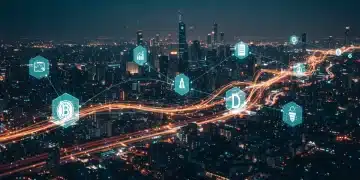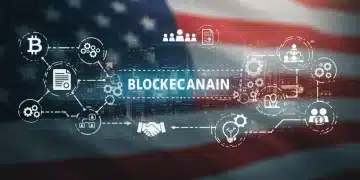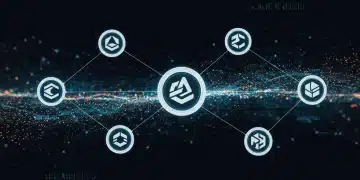Smart Contract Automation: How Oracles Integrate Real-World Data

Smart contract automation leverages oracles to bridge the gap between blockchain technology and real-world data, enabling smart contracts to execute based on external information and events.
Unlock the potential of self-executing agreements with smart contract automation, powered by the integration of oracles to access and utilize real-world data for seamless and reliable execution.
Understanding Smart Contract Automation
Smart contract automation is revolutionizing how agreements are executed by enabling them to self-execute once predefined conditions are met. However, smart contracts alone cannot access data outside of the blockchain. This is where oracles come in.
Oracles act as bridges, bringing external, real-world data onto the blockchain, allowing smart contracts to react to events and information outside their native environment. This integration is crucial for creating dynamic and versatile smart contracts.
The Role of Oracles in Smart Contracts
Oracles are essential for fetching and verifying real-world data, ensuring the smart contract has accurate information for triggering its execution. Without oracles, smart contracts would be limited to on-chain data, severely restricting their functionality.
Benefits of Automation with Oracles
Automating smart contracts using oracles brings several advantages, including increased efficiency, reduced costs, and improved transparency. By removing intermediaries and relying on verified data, smart contracts become more reliable and trustworthy.
- Enhanced Efficiency: Automate processes that require external data without manual intervention.
- Cost Reduction: Eliminate the need for intermediaries, lowering transaction costs.
- Improved Accuracy: Rely on verified data from reputable oracles for accurate execution.
- Increased Transparency: Ensure all data inputs are transparent and verifiable on the blockchain.
In summary, integrating oracles into smart contracts facilitates a seamless interaction between the blockchain and the real world, creating opportunities for innovation across various industries. This integration promotes efficiency, accuracy, and transparency, enhancing the overall functionality and reliability of smart contracts.
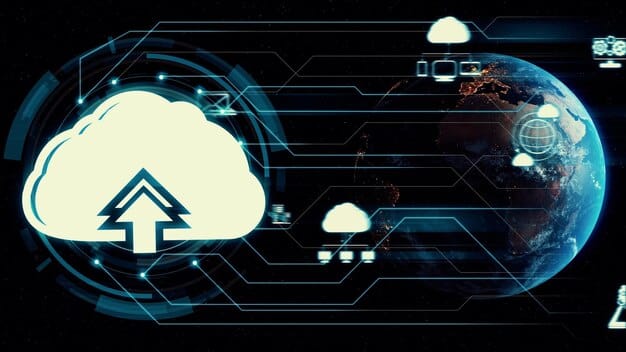
How Oracles Provide Real-World Data
Oracles play a pivotal role in the smart contract ecosystem by providing a reliable and secure way to access off-chain data. This data can range from financial market information to weather data, enabling a wide array of automated applications.
The process of bringing real-world data onto the blockchain involves several steps, including data collection, verification, and transmission to the smart contract. Different types of oracles exist to cater to various data needs and security requirements.
Types of Oracles
Oracles can be categorized based on their data source, centralization, and direction of information flow. Each type has its strengths and weaknesses, making them suitable for different use cases. Understanding these distinctions is essential for selecting the right oracle for a specific smart contract.
Data Verification and Security
Ensuring the integrity and accuracy of data provided by oracles is crucial for the reliability of smart contracts. Various mechanisms, such as data aggregation and trusted sources, are used to verify the data before it is used in a smart contract.
- Centralized Oracles: Provide data from a single source, offering speed but posing a risk of manipulation.
- Decentralized Oracles: Aggregate data from multiple sources, increasing reliability and reducing single points of failure.
- Data Aggregation: Combines data from multiple sources to enhance accuracy and reduce the impact of individual data errors.
In conclusion, oracles are essential for providing accurate, real-world data to smart contracts, enabling them to perform complex automated tasks. The security and reliability of oracles are paramount, and various techniques are employed to ensure data integrity. Choosing the right type of oracle and implementing robust verification mechanisms are key to successful smart contract automation.
Practical Applications of Smart Contract Automation
The integration of oracles into smart contracts opens up a myriad of practical applications across diverse industries. By automating processes based on real-world data, businesses can achieve greater efficiency, transparency, and trust.
From supply chain management to decentralized finance (DeFi), smart contract automation is transforming traditional ways of doing business. These applications demonstrate the versatility and potential of smart contracts in the real world.
Supply Chain Management
Smart contracts can automate various processes in supply chain management, such as tracking goods, verifying authenticity, and automating payments. By integrating oracles, these contracts can react to real-time data, ensuring smooth and efficient operations.
Decentralized Finance (DeFi)
In DeFi, smart contracts rely on oracles to provide accurate price feeds, collateralization ratios, and other essential data. This enables automated lending, borrowing, and trading platforms with greater transparency and reduced risk.
- Automated Payments: Trigger payments automatically upon confirmation of goods delivery, reducing delays and disputes.
- Real-Time Tracking: Monitor the location and condition of goods in real-time using IoT data from oracles.
- Price Feeds: Obtain accurate and reliable price data for various assets, ensuring fair and transparent trading.
In summary, smart contract automation is revolutionizing various industries by leveraging oracles to access and act upon real-world data. Applications in supply chain management and decentralized finance highlight the potential for increased efficiency, transparency, and trust. As the technology continues to evolve, we can expect even more innovative use cases to emerge.
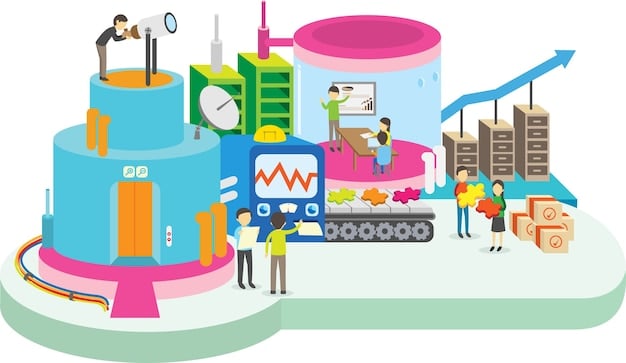
Challenges and Solutions in Oracle Integration
While integrating oracles into smart contracts offers numerous benefits, it also presents certain challenges that need to be addressed to ensure the reliable and secure operation of automated contracts. These challenges range from data accuracy and security to scalability and cost.
Addressing these challenges requires careful consideration of oracle selection, data verification mechanisms, and overall system design. By implementing robust solutions, developers can mitigate the risks associated with oracle integration and maximize the benefits of smart contract automation.
Data Accuracy and Verification
Ensuring the accuracy and integrity of data provided by oracles is paramount. Strategies such as using multiple oracles, implementing data validation checks, and relying on trusted sources can help mitigate the risk of inaccurate data.
Security Risks and Mitigation
Oracles can introduce security vulnerabilities if not properly managed. Securing the oracle infrastructure, implementing redundancy, and monitoring for malicious activity are essential steps in mitigating security risks.
- Data Validation: Implement checks to ensure data falls within acceptable ranges and is consistent with other sources.
- Redundancy: Use multiple oracles to reduce reliance on a single data source and increase resilience.
- Monitoring: Continuously monitor oracle performance and data accuracy to detect and respond to potential issues.
In conclusion, while oracle integration introduces challenges related to data accuracy, security, and scalability, these can be effectively addressed through careful planning and implementation. By focusing on data validation, security measures, and cost optimization, developers can harness the full potential of smart contract automation while minimizing risks. Continuously monitoring and adapting to new challenges is essential for ensuring the long-term success of oracle-integrated smart contracts.
Choosing the Right Oracle for Your Smart Contract
Selecting the right oracle for your smart contract is a critical decision that can significantly impact the performance, security, and reliability of your automated agreement. Factors such as data source, centralization, and cost should be carefully considered.
Understanding the different types of oracles available and their trade-offs is essential for making an informed decision. By aligning the oracle selection with the specific requirements of your smart contract, you can ensure optimal performance and security.
Key Considerations for Oracle Selection
When choosing an oracle, consider factors such as the type of data required, the level of decentralization needed, the cost of data access, and the reputation of the oracle provider. Each of these factors can influence the overall effectiveness of your smart contract.
Evaluating Oracle Providers
Researching and evaluating different oracle providers is crucial for finding a reliable and trustworthy source of data. Look for providers with a proven track record, robust security measures, and transparent data validation processes.
- Data Accuracy: Verify the accuracy and consistency of data provided by different oracle providers.
- Security Measures: Assess the security protocols and infrastructure used by the oracle provider to protect against data manipulation and attacks.
- Cost-Effectiveness: Compare the costs of data access from different providers to find a solution that fits your budget.
In summary, choosing the right oracle requires a thorough evaluation of your smart contract’s specific data needs, security requirements, and budget considerations. By carefully assessing different oracle providers and their offerings, you can select a solution that optimizes performance, ensures data integrity, and minimizes risks. Continuous monitoring and adaptation are key to maintaining the effectiveness of your oracle integration over time.
Future Trends in Smart Contract and Oracle Technology
The landscape of smart contract and oracle technology is continually evolving, with new innovations and trends emerging that promise to enhance the capabilities and applications of automated agreements. Staying abreast of these developments is crucial for developers and businesses looking to leverage the full potential of blockchain technology.
From advancements in decentralized oracle networks to the integration of AI and machine learning, the future holds exciting possibilities for smart contract automation. Embracing these advancements can lead to more efficient, secure, and versatile smart contract applications.
Advancements in Decentralized Oracles
Decentralized oracle networks are becoming more sophisticated, offering enhanced security, reliability, and data accuracy. These networks are leveraging techniques such as data aggregation, staking, and reputation systems to improve the quality of data provided to smart contracts.
AI and Machine Learning Integration
The integration of AI and machine learning into oracle technology is enabling more intelligent and adaptive smart contracts. AI-powered oracles can analyze complex data patterns, predict future trends, and provide more accurate and timely information to smart contracts.
- Data Aggregation Techniques: Improved methods for combining data from multiple sources to enhance accuracy and reduce bias.
- Reputation Systems: Implementing mechanisms to reward reliable oracles and penalize those that provide inaccurate data.
- Predictive Analytics: Using AI to forecast future events and provide smart contracts with insights for automated decision-making.
In conclusion, the future of smart contract and oracle technology holds immense potential for innovation and transformation. Advancements in decentralized oracles and the integration of AI and machine learning are poised to enhance the capabilities of smart contracts, making them more efficient, secure, and versatile. By embracing these trends, developers and businesses can unlock new opportunities and stay ahead in the rapidly evolving world of blockchain technology.
| Key Point | Brief Description |
|---|---|
| 🔗 Oracle Integration | Connects smart contracts to real-world data sources. |
| 💰 Cost Reduction | Automated contracts reduce the need for intermediaries. |
| 🛡️ Security | Decentralized oracles enhance data reliability and security. |
| 🤖 AI Integration | AI-powered oracles offer advanced data analysis. |
Frequently Asked Questions
▼
Smart contracts are self-executing agreements written in code, stored on a blockchain, and automatically enforced when predefined conditions are met. They eliminate the need for intermediaries in transactions.
▼
Smart contracts cannot natively access off-chain data. Oracles provide this bridge, enabling contracts to react to real-world events and information, expanding their functionality.
▼
Oracles can provide a wide array of data, including financial market data, weather information, sports scores, and supply chain tracking, enabling versatile smart contract applications.
▼
Implement decentralized oracles, use data validation checks, and monitor oracle performance to mitigate security risks and ensure data accuracy for reliable smart contracts.
▼
Future trends include advancements in decentralized networks and the integration of AI. These developments will enhance data accuracy, security, and the overall capabilities of smart contracts.
Conclusion
In conclusion, smart contract automation through the integration of oracles is transforming various industries by enabling agreements to react to real-world data. While challenges exist, advancements in technology and best practices offer solutions for creating efficient, secure, and reliable automated contracts.
